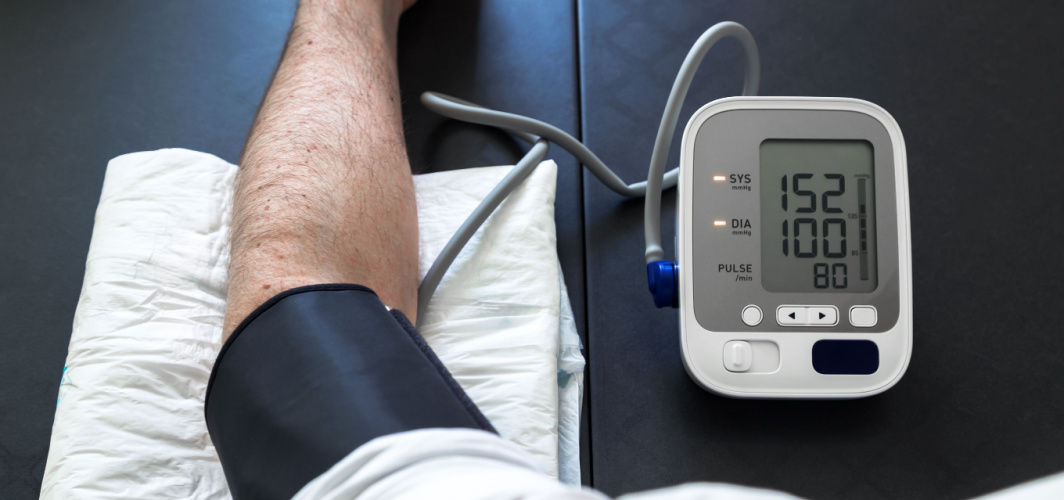General Health
All You Need To Know About Nipah Virus
4 min read
By Apollo 24|7, Published on - 28 September 2023
Share this article
0
0 like

Nipah virus (NiV) is a zoonotic virus, which means it can be transmitted from animals to humans. Its primary mode of transmission is through fruit bats, also known as flying foxes, although it can also spread via other animals such as pigs, goats, dogs, horses or cats. The Nipah virus was initially identified in 1999 during an outbreak affecting both pigs and humans in Singapore and Malaysia. The virus can lead to a variety of illnesses, from asymptomatic infections to acute respiratory conditions. Here's your answer for what is Nipah virus, and its symptoms, causes, prevention and treatment.
Potential Symptoms of Nipah Virus
Researchers have not established the precise reasons behind the variability in symptom severity in Nipah virus infections. Some individuals may experience severe symptoms, while others may only have mild ones, and there are cases where individuals remain asymptomatic (experience no symptoms).
Typically, the Nipah virus has an incubation period of 4-14 days, this means symptoms manifest within a range of four to 14 days following exposure to the virus. It is common for individuals to initially experience symptoms such as headache or fever, followed by respiratory issues. The initial symptoms of a Nipah virus infection may include:
- Headache
- Fever
- Breathing difficulties
- Diarrhea
- Cough and sore throat
- Severe weakness and muscle pain
- Vomiting
In severe cases, the infection can progress to a potentially life-threatening brain infection known as encephalitis. Additional severe symptoms may include:
- Slurred speech
- Confusion and disorientation
- Seizures
- Respiratory distress
- Coma
Causes of Nipah Virus
The first recorded case of Nipah virus infection was seen in individuals who had close contact with infected pigs. Subsequent research revealed that bats were the primary source of the virus, initially transmitting it to pigs.
- When an infected pig or bat comes into contact with another animal, it can transmit the virus through bodily fluids. This mode of transmission can occur when people have contact with an infected animal's bodily fluids, which can include urine, faeces, saliva, or blood.
- Once an individual becomes infected with the virus, they can, in turn, transmit it to others through their bodily fluids.
- Transmission can also take place when food products become contaminated with the fluids of infected animals. This includes instances where raw date palm sap and fruits become contaminated.
- Additionally, individuals who frequently come into contact with areas where bats roost and rest, such as tree climbers, have also been known to contract the Nipah virus.
How is Nipah Virus Diagnosed?
The initial symptoms of the Nipah virus are often nonspecific, and healthcare providers may not initially suspect the diagnosis. This can pose challenges in achieving an accurate diagnosis and implementing effective treatment promptly.
1. A healthcare professional can diagnose Nipah virus infection by assessing your symptoms and inquiring about recent travel to regions where the Nipah virus is prevalent.
2. During the early stages of infection, a doctor can conduct a real-time polymerase chain reaction (RT-PCR) test to check for the presence of the Nipah virus. This test for Nipah virus examines the following bodily fluids:
- Throat or nasal swabs
- Blood samples
- Urine samples
- Cerebrospinal fluid (CSF)
3. In the later stages of the infection or after recovery, healthcare providers can diagnose it by testing the blood for specific antibodies. This diagnostic method is known as enzyme-linked immunosorbent assay (ELISA).
Treatment Options for Nipah Virus
There are currently no medications or vaccines available to cure Nipah virus infection. Therefore, treatment primarily focuses on managing the symptoms. This may involve the following measures:
- Staying well-hydrated by drinking plenty of water.
- Getting an adequate amount of rest.
- Using over-the-counter pain relievers such as acetaminophen or ibuprofen.
- Utilising medications to alleviate nausea or vomiting.
- Taking anti-seizure medications if seizures occur.
- Employing nebulizers or inhalers to improve breathing difficulties.
Prevention Tips for Nipah Virus
If you reside in or travel to a region where the Nipah virus is prevalent, it's crucial to take the following precautions to reduce the risk of infection:
- Practise frequent handwashing to maintain good hygiene.
- Avoid any direct contact with sick bats, pigs, or other animals.
- Ensure proper cleaning and disinfection of pig farms, and immediately quarantine animals displaying symptoms.
- Stay away from bushes or trees where bats are known to sleep.
- Refrain from consuming items that may be contaminated, like fruit or palm sap. If you want to consume palm sap, then make sure to boil it before use, and wash and peel the fruits before consumption.
- Dispose of any fruit that has touched the ground or has bat bites.
- Avoid any contact with the blood, saliva, or other bodily fluids of individuals suspected of having the viral infection.
If you are caring for an individual with a confirmed or suspected Nipah virus infection, then it's essential to use personal protective equipment (PPE), including:
- Medical gloves
- Isolation or full coverage gowns to shield against bodily fluids
- Eye protection, such as goggles or safety glasses
- Surgical or medical masks
Takeaway
If you or someone you know has been experiencing the aforementioned symptoms of Nipah virus infection, inform the local health authorities and get immediate medical help.
For more information,
General Health
Frequently Asked Questions
Is Nipah virus dangerous?
Is Nipah virus dangerous?
How can Nipah virus spread?
How can Nipah virus spread?
What factors increase the risk of Nipah virus infection?
What factors increase the risk of Nipah virus infection?
What complications can arise from Nipah virus infection?
What complications can arise from Nipah virus infection?
When should I seek medical attention for a Nipah virus infection?
When should I seek medical attention for a Nipah virus infection?
Leave Comment
Recommended for you

General Health
5 Diseases That Show No Signs And Symptoms But Can Kill You
While most diseases have symptoms, a few of them don't. This can be fatal because they remain largely undiagnosed. Being proactive about your health can help you prevent these silent killers.

General Health
Dengue Diet: What to Eat and Avoid in Dengue Fever?
Eating healthy, nutritious food can help fight most diseases. So, if you’re suffering from dengue fever and are wondering what to eat and avoid, read on to know more.

General Health
Which Diseases Can Be Diagnosed With A Urine Test?
The article focuses on the types of urine tests and the diseases they may help diagnose.
Subscribe
Sign up for our free Health Library Daily Newsletter
Get doctor-approved health tips, news, and more.
Visual Stories

Could There Be More to Your Snore?
Tap to continue exploring
Recommended for you

General Health
5 Diseases That Show No Signs And Symptoms But Can Kill You
While most diseases have symptoms, a few of them don't. This can be fatal because they remain largely undiagnosed. Being proactive about your health can help you prevent these silent killers.

General Health
Dengue Diet: What to Eat and Avoid in Dengue Fever?
Eating healthy, nutritious food can help fight most diseases. So, if you’re suffering from dengue fever and are wondering what to eat and avoid, read on to know more.

General Health
Which Diseases Can Be Diagnosed With A Urine Test?
The article focuses on the types of urine tests and the diseases they may help diagnose.